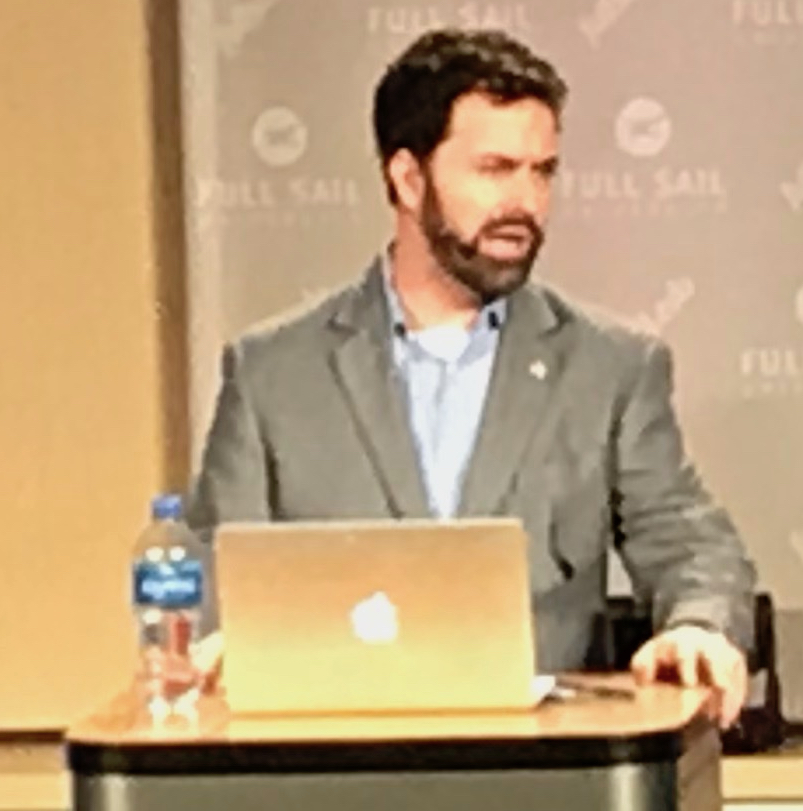I have been in the creative field in one way or another my whole life. Sometimes as a vocation, sometimes as a side gig, and sometimes on the margins. But the one thing that sits deeply within the construct of The Creator Mindset is understanding how the work I produce touches others. I’m conscious of it. Be it these columns that I write in the paper or talks I give at a company or conference, I am hypersensitive to how our words and actions affect others for many reasons – but one of the most noteworthy reasons starts with a garage sale. Yep. A lawn sale in someone’s front yard.

You see, when I was a kid, one of our favorite family activities was to go to garage sales. It was a low-cost activity for a family of five, and there were always plenty of yard sales on the weekend in Los Angeles. We ended up buying a lot of junk we didn’t need. Things like hi-fi’s that only partially worked, slightly imperfect vases, and lots and lots of knick-knacks. But occasionally, you would find that diamond in the rough, that find so good that it made going out to these things every weekend worth it.
It turned out that we had bought a box of records and old 8-track tapes. It must have been on sale for cheap. For fear of revealing my age, 8-track was an old tape cassette playback system that was the predecessor to the cassette tape. And records, for those who don’t know, are wax discs that turn on a turntable and are played back by a needle. If you are surprised by my need to explain these items, just step inside a college classroom. I taught both undergrad and grad school for years at a few different universities, and at one school, a favorite colleague would begin each class by writing “33,” “45,” and “78” on the board. He asked the students to explain what these numbers meant. And predictably, no one knew. They are the rate of spin per minute on record players. Most records today are 33’s, and the small ones tend to be 45’s. 78’s are a much older record, but I digress here. Because inside the box of 8-tracks, 33’s, and 45’s at that garage sale, there was a treasure. There was a record from a guy named Earl Nightingale – and that record changed my life forever.
Earl Nightingale was not a musician or a folk singer as his name might suggest. He was the world’s first self-help guru. He originally recorded some records of him talking through some sales strategies that would help sales teams communicate better, and techniques that he found helpful in how to treat a customer, how to keep and manage accounts, and how to grow your business. But soon, folks who listened closely enough found that there were words of wisdom held deep within Earl’s teachings. Words that transcended business. It wasn’t really sales he was teaching but how to help people realize their innate potential.
One of his teachings that has stuck with me to this day and is an integral part of The Creator Mindset is that he said no matter what you decide to do in life at your profession, do it well. If your dream is to be a gas station attendant, then pump the best gas you can. Keep your station clean and your rag well washed. Smile and attend to your service quickly and accurately. Because it’s not about the type of vocation that you choose, it’s about how you personally carry out that vocation. To Earl, there was no shame in even the most meager of jobs – as long as these jobs were carried out to the fullest of their potential. He talked a lot about taking pride in your work, no matter what it is that you do. Shaped by these records from the mid-1950s, The Creator Mindset views any work as a service to others. The DNA in understanding that each bit of work you produce is interconnected, no matter what you do. No man is an island. Each and everything you do, in whatever field it is, affects others.
Back to the gas station attendant; if you do a job to the best of your ability, you have no idea how much impact you can have on the person you are helping. Their life just might be horrible at that particular moment. Or they are having the day or week from hell. It just might be that they are not in a good spot and the kindness you showed them at that exact moment made their life a bit more bearable.
You never know what happened in the moments before you see someone. You have no control of where they came from or what led them to you. And you never know what experiences have led someone to have the life that they lead. But the one thing you can control is how you act. How that moment connects with your life through your chosen vocation is your choice. And it makes every job significant, no matter what you do.
It is not only the very fabric of The Creator Mindset; I am afraid it is also the very fabric of life. And if we take to that moment with a bit of forethought – with a bit of empathy – perhaps we can also make our work a service to others, often times in ways we have never imagined. And the aftereffects can have implications that are unseen yet nonetheless incredibly powerful.

Nir Bashan is an executive creative director/managing director with over 19 years of advertising, entertainment and business development experience. He helps teach folks in non-creative fields how to think creatively to solve problems. He leads workshops and lectures on topics relating to The Creator Mindset. McGraw/Hill is publishing a book on The Creator Mindset that will be released in 2020. http://www.nirbashan.com/.


